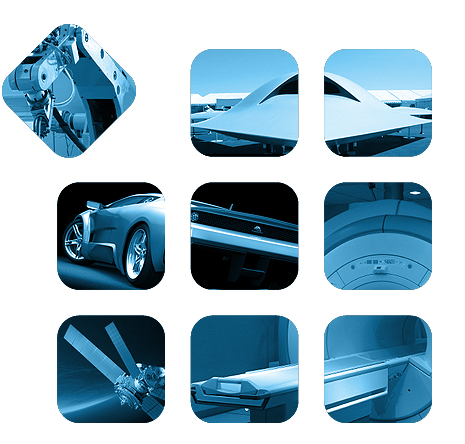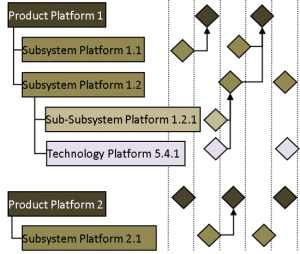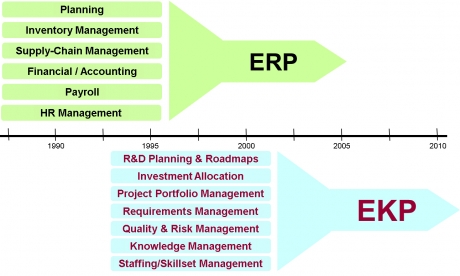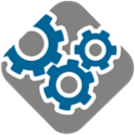Accelerate the Deployment of Digital Engineering
Digital Engineering (DE) is the use of digital artifacts, environments, processes, methods, tools, and workflows in the performance of engineering functions. DE expands data and model accessibility through the product life-cycle. By digitally connecting all aspects of development, DE reduces costs, minimizes defects, and improves reliability. DE streamlines planning, requirements, design, analysis, verification, validation, operation, and sustainment of any product.
Realization of these benefits require the deployment a Digital Engineering Ecosystem (DEE) bringing together people, tools, artifacts, and workflows. Inspird’s software tools facilitate the deployment of an efficient DEE. Inspird Organize structures engineering information across disciplines and lifecycles. Inspird Manage leverages the organized information to facilitate effective DEE management. Inspird Certify enables digital certifications and approvals.
Inspird is leveraging advances in Artificial Intelligence and Big Data to develop additional tools to accelerate digital model-based engineering:

Inspird Tools to Accelerate Digital Engineering:
AI-assisted Builder of Digital Thread with Technical Coherence
A Digital Thread (DT) is the means by which the data and models in the DEE are accessed, queried, visualized, transformed, linked, analyzed, and updated. Technical Coherence is the logical traceability of the evolution of a system’s data and models, decisions, and solutions throughout the lifecycle. DT can expand data accessibility and streamline DE from R&D to disposal.
Under Air Force, DARPA and MDA innovation contracts, Inspird is developing an Intelligent Digital Thread Composer (IDTC). IDTC will help teams use simple descriptions of their analytical objectives to find the right artifacts. IDTC leverages cutting-edge AI Technical Language Processing to process large repositories of legacy models across locations. IDTC integrates all types of artifacts, regardless of file format.

IDTC uses intuitive multidimensional taxonomies and ontologies to organize diverse artifacts. IDTC traces dependencies between artifacts and support automatic composition of assemblies of models. IDTC tracks artifact provenance and evolution through development lifecycle. IDTC will enable on-demand access to artifacts across disciplines and accelerate the adoption of digital model-based approaches.
A Digital System Model (DSM) is a digital representation of a system integrating technical data and artifacts, to define all aspects of the system through its lifecycle. DSM enables construction of a Digital Twin (DTw) that mirrors and predicts performance over the life of its physical twin using an integrated multi-physics probabilistic simulation of DSM.
Under DARPA and MDA innovation contracts, Inspird is developing an Intelligence Digital System Model Builder (IDSMB). IDSMB enables users to interactively compose models assemblies and build distributed simulations. IDSMB automatically exercises tools distributed across locations while addressing license and version constraints. IDSMB includes a robust scheduler and an idempotent communicator to build fault-tolerant simulations across IP, security or computational boundaries.

IDSMB integrates advanced Artificial Intelligence toolkit to automatically construct fast, accurate surrogate models of complex physics-based models. AI surrogate models allow faster-than-real-time simulations and digital twins. Together, IDSMB enables dynamic and rapid model-based analytics, enterprise-level-trades, and war gaming. IDSMB also streamlines the implementation of physics-based and probabilistic engineering methods.
DEE Deployment Cost Modeler
Efficient deployment of a Digital Engineering Ecosystem can enhance product development throughout product life-cycle. DEE can help build knowledge-sharing communities, reduce defects, streamline operations and enhance sustainment by allowing numerical exploration of design space.
However, many DEE architectures and approaches are available to deliver these benefits. Advanced IT and software tools often require significant investment. They also require changes to people and processes to produce results. A thorough analysis of costs and benefits, along with their impact over time is required to select the optimal path forward.
Under an Air Force innovation contract, Inspird is developing automated tools to perform these cost-benefit analysis and develop business cases for each DEE architecture option. Our will tools provide meaningful insights and graphics to help executives decide the best path forward.

Reuse of technologies and modules across product-lines can improve efficiency of complex global product development:
- Respond rapidly to changing market needs
- Reduce time-to-market for future products
- Reduce manufacturing capital investments
- Improve cross-product synergy
Modular design has been shown to improve reuse. However, it also adds challenges:
- Up to 10x increase in upfront costs
- Reduced innovation because of interfaces and interactions
- Limits on module complexity and included technologies
- Rigorous libraries and tools needed to support reuse

Inspird has developed a new Hierarchical Platforms-Based Design (HPBD) approach that brings the library of reusable designs approach to all industries. HPBD brings Moore’s law-like increase in capability and reduction in cost to physical systems involving multiple technologies. HPBD builds a library of reusable designs without incurring additional costs, requiring large volumes, or standardized interfaces.
Successful innovation delivery in global supply-chains requires effective management. Management is challenging because development essentially is about generating new knowledge that is unstructured and scattered across tools.
InspiRD’s Enterprise Knowledge Planning (EKP) to connect tools in engineering ecosystems. EKP structures R&D knowledge and produces a reusable knowledge inventory. EKP brings efficiency, control and insight of ERP (Enterprise Resource Planning) to R&D:
- Respond rapidly to customer needs
- Leverage cross-product synergies
- Enhance collaboration and coordination
- Minimize surprise risks and overruns
- Reduce administrative overhead

Just like ERP, the value of an integrated R&D management system is far greater than its individual pieces. EKP brings the discipline, repeatability and predictability of ERP to R&D and product development.



